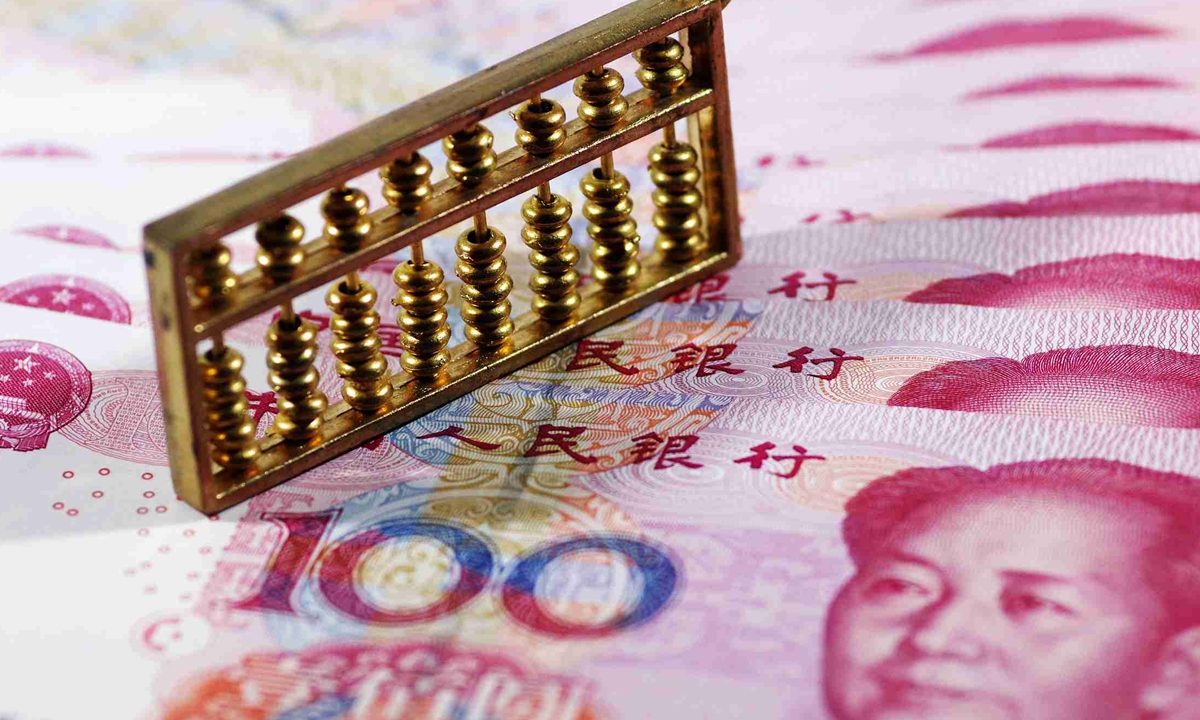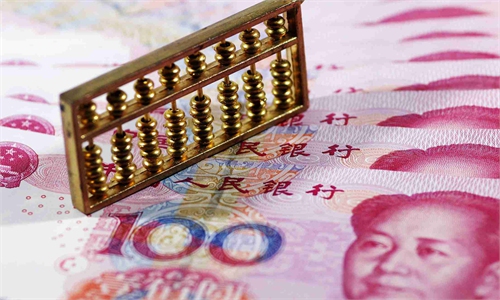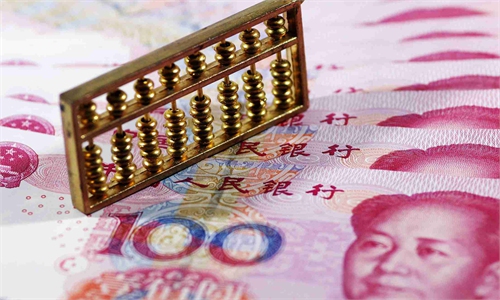
Chinese yuan Photo:VCG
Chinese yuan depreciated against the US dollar on the first trading day after the three-day Dragon Boat Festival holidays. However, the downward pressure on the currency in the short term unlikely point to a sustained decline in the future considering the recovery momentum of the Chinese economy, experts said.
The offshore yuan slipped to 7.24 per dollar during trading hours on Tuesday, the first time it breached the 7.2 mark since November last year, while the onshore yuan weakened to 7.23, according to information portal chinamoney.com.cn.
The Chinese currency has maintained a dipping trend since May when its exchange rate against the US dollar passed the 7 mark, the first time in nearly five months.
Widening yield differentials with the US, which is still on the possible path of interest rate hikes, weaker-than-expected economic data recently unveiled by China, as well as growing uncertainties in global markets could be major factors keeping the yuan at the low level against the greenback, experts said.
Zhou Maohua, an economist at Everbright Bank, told the Global Times on Monday that the market's expectation of another rate hike by the US Fed in July is heating up, which means that the US financial environment may tighten, and the US banking system crisis and economic recession concerns may rekindle. The greenback is often seen as a safe haven currency, which will boost its strength.
"Against this backdrop, the fluctuation can be seen as part of normal market depreciation," Zhou said.
There is relatively high uncertainty about the inflation situation, policies and economic outlook overseas, resulting in large fluctuations in the global market, which will also impact on the yuan's exchange rate, he added.
Despite the persistent downward pressure on the yuan, the currency's exchange rate against the dollar has not deviated from the reasonable range, the market sentiment has remained stable, and the flexibility of the yuan's exchange rate has significantly enhanced, Zhou said.
Speaking at the 14th Lujiazui Forum in Shanghai earlier this month, Pan Gongsheng, deputy governor of the People's Bank of China, the central bank, said that the yuan's volatility reflected various internal and external factors, including the Fed's aggressive interest rate hikes since March 2022.
Another factor is that the foundation for the domestic economic recovery is not yet solid, Pan said.
Although there have been fluctuations, China's forex market has operated smoothly, Pan noted, adding that exchange rate market expectations and China's cross-border capital flows are stable.
China's three major economic indexes saw moderate growth in May, with industrial output rising 3.5 percent and retail sales expanding 12.7 percent on a yearly basis, the National Bureau of Statistics said.
Fixed-assets investment also slowed due to a sluggish real estate sector, where investment in the first five months of the year declined 7.2 percent, extending the 6.2 percent fall registered in the January-April period.
"China is still on the course for a sustained recovery, even though some economic indicators point to a moderate growth," Zhou said. "There is still large room for policymakers to launch more targeted stimulus measures to boost the economy."
Xing Ziqiang, also known as Robin Xing, chief China economist at Morgan Stanley, said in a recent note that as the Chinese economy stays on the recovery track in the second half of the year, driven by a new round of policy stimulus and the steady rebound of the services industry, the exchange rate index of the yuan against a basket of other currencies will stabilize.



